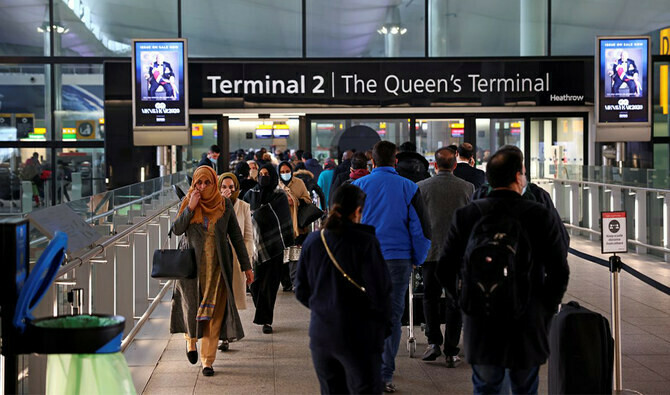Passports of half a million Pakistanis in UK at risk under new British law
3 min readAs many as 500,000 Pakistanis with British passports could be stripped of their UK citizenship under the new National and Borders Act 2022 that came into effect on June 28, 2022.
More alarmingly, if you are stripped of your citizenship, the UK government does not need to inform you. This new part was introduced in Clause 9 of the bill.
BREAKING🚨: The Borders Bill has received Royal Assent to become law 🇬🇧
— Home Office (@ukhomeoffice) April 28, 2022
This landmark Act will allow us to fix our broken asylum system so we can better support those in genuine need of asylum through safe and legal routes.#NewPlanForImmigration pic.twitter.com/ZIsIwbqB4e
The UK government argues it can strip people of their nationality if they are entitled to citizenship of another country. So it is possible to strip people of their UK citizenship if they have another nationality to fall back on. If you have a dual citizenship this applies or if it is possible for you to be eligible for citizenship somewhere else, such as the country your parents come from.
These new rules could affect hundreds of thousands of Pakistanis because Pakistan offers citizenship to anyone born in the country after 1951. More than 417,000 Pakistanis who are residents of the UK are thus eligible for Pakistani citizenship and meet this criterion. The same applies to another 65,000 Pakistanis in the UK if at least one of their parents is Pakistani. [Read the articles in the New Stateman here]

Since 2006, the UK has had the power to strip dual nationals of their British citizenship if doing so is deemed to be “conducive to the public good” or in the interest of national security. This vague description concerns cases of terrorism suspects, war criminals and spies. (In 2019, the former ISIS supporter Shamima Begum, who was born in London as a British citizen, was stripped of her UK citizenship.)
Since 2014, the measures have applied to naturalised UK citizens (foreign born and without dual nationality) who are eligible for foreign citizenship, even if they do not currently possess dual nationality. So, a Pakistani who is eligible for Pakistani citizenship would fall in this category. The UK government can act against them if it believes this person has done something against the British national interest.
If you lose your citizenship, you will no longer be able to live in the UK. Section 40 of the British Nationality Act 1981 (as amended) provides a power to deprive a person of his or her British citizenship status. British nationality law provides for six different types of British nationality status.
British nationality law provides for six different types of British nationality status
- British citizenship
- British overseas territories citizen
- British overseas citizen
- British subject
- British national (overseas)
- British protected person
Some changes came into effect the day the bill was passed as an Act. Others came into effect two months from that date, ie June 28. This is fully explained here.
Background to citizenship law changes in UK
1981: The British Nationality Act 1981 entered into force on January 1, 1983. 2003: The Nationality, Immigration and Asylum Act 2002 entered into force on April 1, 2003. For the first time people who had acquired British citizenship through birth could be stripped of their citizenship under it.
For the latest news, follow us on Twitter @Aaj_Urdu. We are also on Facebook, Instagram and YouTube.






















Comments are closed on this story.